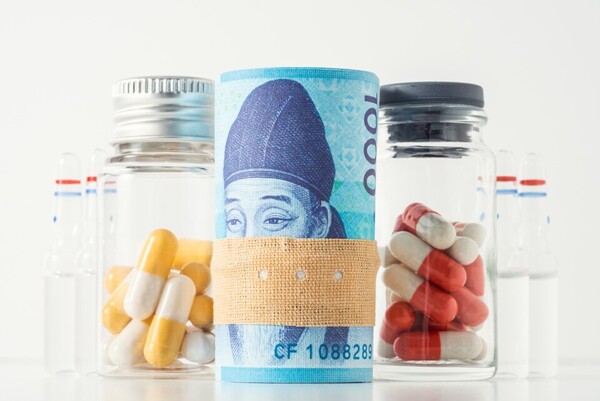Eight out of 10 patients administered the ultra-expensive drug, Kymriah Inj., which costs hundreds of millions of won, did not achieve meaningful therapeutic results, a lawmaker pointed out.

The legislator emphasized the need to increase the reimbursement rate for pharmaceutical companies if these expensive new drugs are ineffective.
Rep. Kim Young-jo of the Democratic Party of Korea said Friday that more than 75 percent of patients treated with Kymriah showed no improvement, based on his analysis of data from the Health Insurance Review and Assessment Service (HIRA) on the administration status and patient response evaluation of ultra-high-priced drugs, such as Kymriah and Zolgensma.
Kymriah is a super-expensive treatment for B-cell acute lymphoblastic leukemia and diffuse large B-cell lymphoma, costing 360 million won ($267,060) per dose. It is primarily used to treat children and younger patients under 25.
Often known as the most expensive drug, Zolgensma is a treatment for spinal muscular atrophy (SMA) with an unreimbursed cost of 1.98 billion won per dose. Kymriah began to get insurance benefits in April 2022, and Zolgensma did so in July of the same year, reducing patients’ co-payments to a maximum of 6 million won.
The number of patients treated with Kymriah since its inclusion in the health insurance program totaled 146, 21 patients with pediatric leukemia and 125 patients with diffuse large B-cell lymphoma, with insurance claims totaling 52.6 billion won. Zolgensma has been administered to 12 patients, billing 23.8 billion won.
Since the end of last year, HIRA has operated the Highly Expensive Drug Management System, monitoring the medication information of patients receiving ultra-expensive drugs, such as Kymriah and Zolgensma, as well as their response to the drugs after administration.
In addition, as the cost-effectiveness of ultra-high-priced drugs for severe diseases is unclear, the National Health Insurance Service has implemented a “patient-level performance-based risk-sharing system” to monitor the treatment performance of each patient. If it is ineffective, the pharmaceutical company will reimburse the service a certain percentage of the amount, according to the contract.
According to HIRA, 130 lymphoma patients taking Kymriah for six months as of August had their responses evaluated, and 99 of them were classified as eligible for reimbursement.
Rep. Kim analyzed that more than 75 percent of the patients who received Kymriah did not show meaningful improvement.
Regarding Zolgensma, only one in nine patients who submitted results were eligible for reimbursement, as more than 88 percent of patients treated with the drug showed improvement.
Accordingly, the lawmaker pointed out that it is necessary to strengthen the risk-sharing system and increase the reimbursement rate for pharmaceutical companies if there is no therapeutic effect for the sustainable reimbursement of ultra-expensive new drugs.
"The reimbursement rate is negotiated between the National Health Insurance Service (NHIS) and pharmaceutical companies, but the reimbursement rate is kept secret," Rep. Kim said. "In the case of Kymriah, the reimbursement rate is less than 50 percent even if it is ineffective, and that for Zolgensma is more than 50 percent. The problem is that tens of billions of won are being spent on drugs with poor therapeutic outcomes."
Kim acknowledged that the government may have to expand coverage for patients who need ultra-expensive drugs like Kymriah and Zolgensma for the sustainable coverage of new drugs.
However, she pointed out that it is necessary to strengthen the performance-based risk-sharing system and increase the reimbursement rate for pharmaceutical companies when there is no therapeutic effect.
"As the patient's out-of-pocket expenses are also high even after the ultra-high drug reimbursement, the government should improve the system so that patients can receive part of their reimbursement if the treatment is ineffective," Kim said.

